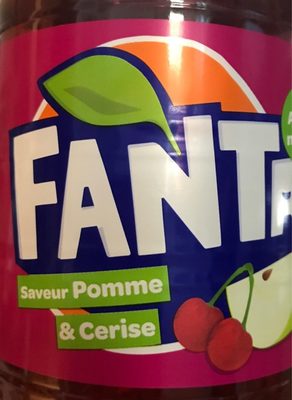Fanta Saveur Pomme & Cerise - 1,5 L
This product page is not complete. You can help to complete it by editing it and adding more data from the photos we have, or by taking more photos using the app for Android or iPhone/iPad. Thank you!
×
Barcode: 5449000091178 (EAN / EAN-13)
Common name: Boisson rafraîchissante saveur pomme-cerise, avec sucre et édulcorant
Quantity: 1,5 L
Packaging: fr:Bouteille et bouchon plastique à recycler
Brands: Fanta, The Coca Cola Company
Categories: Plant-based foods and beverages, Beverages, Plant-based beverages, Carbonated drinks, Fruit-based beverages, Sodas, Fruit sodas, Sweetened beverages
Labels, certifications, awards:
Made in France, Natural flavors, Triman, fr:Info-Tri Point Vert
Manufacturing or processing places: France
Link to the product page on the official site of the producer: http://www.fanta.fr/fr/parfums/
Stores: Banque alimentaire
Countries where sold: France
Matching with your preferences
Environment
Packaging
Transportation
Report a problem
Data sources
Product added on by jacob80
Last edit of product page on by packbot.
Product page also edited by kiliweb, openfoodfacts-contributors, quechoisir, yuka.R29rT0tQOGZvTklYdXNZbjRpL2I2OVJXbXBDbWJIaUxKYkUrSVE9PQ, yuka.VnB3ZU9waGR2ZWdPdFBOZzdDM1Z4dFp5N1lEeFgwVytMZUZMSVE9PQ.










